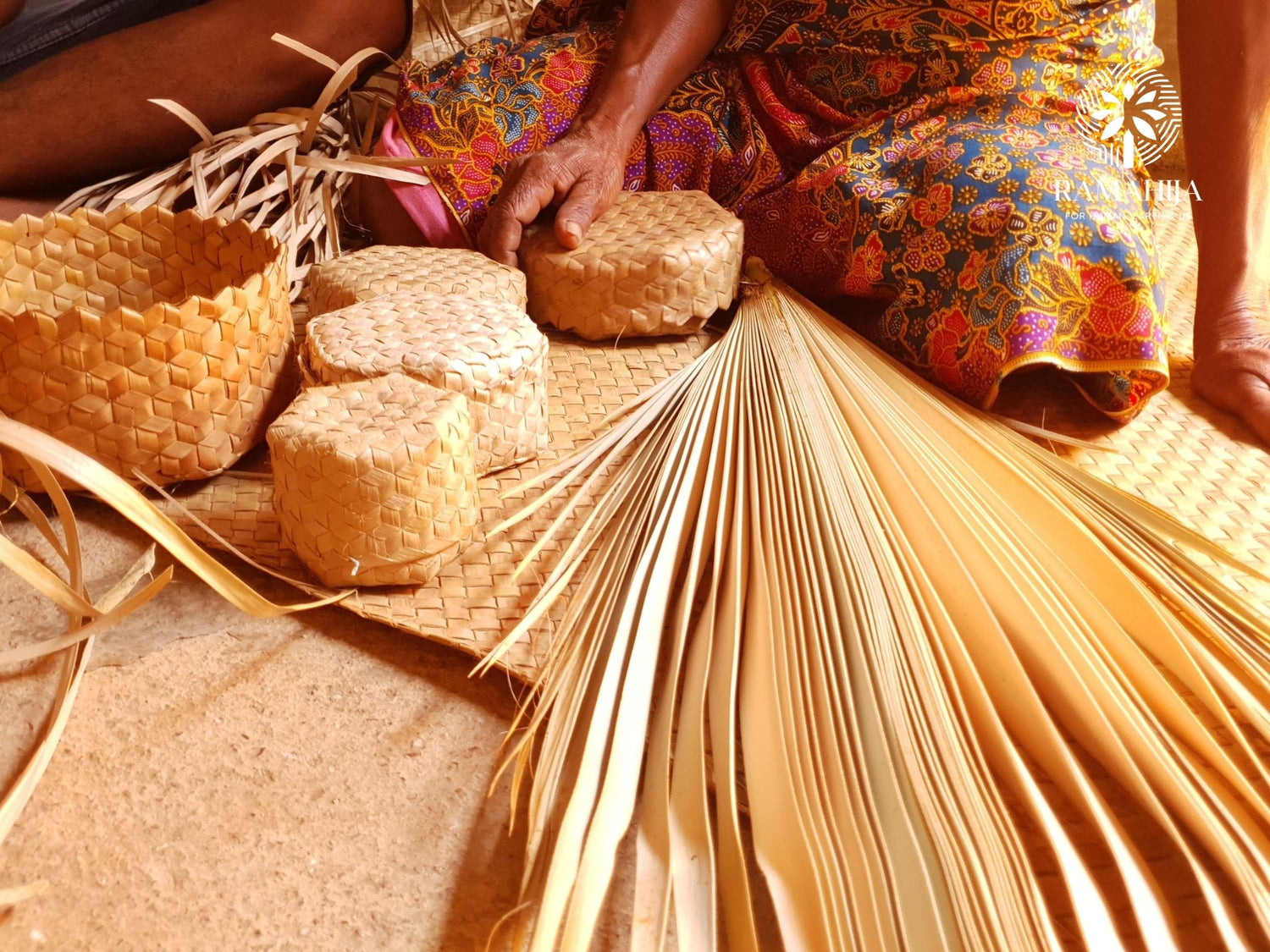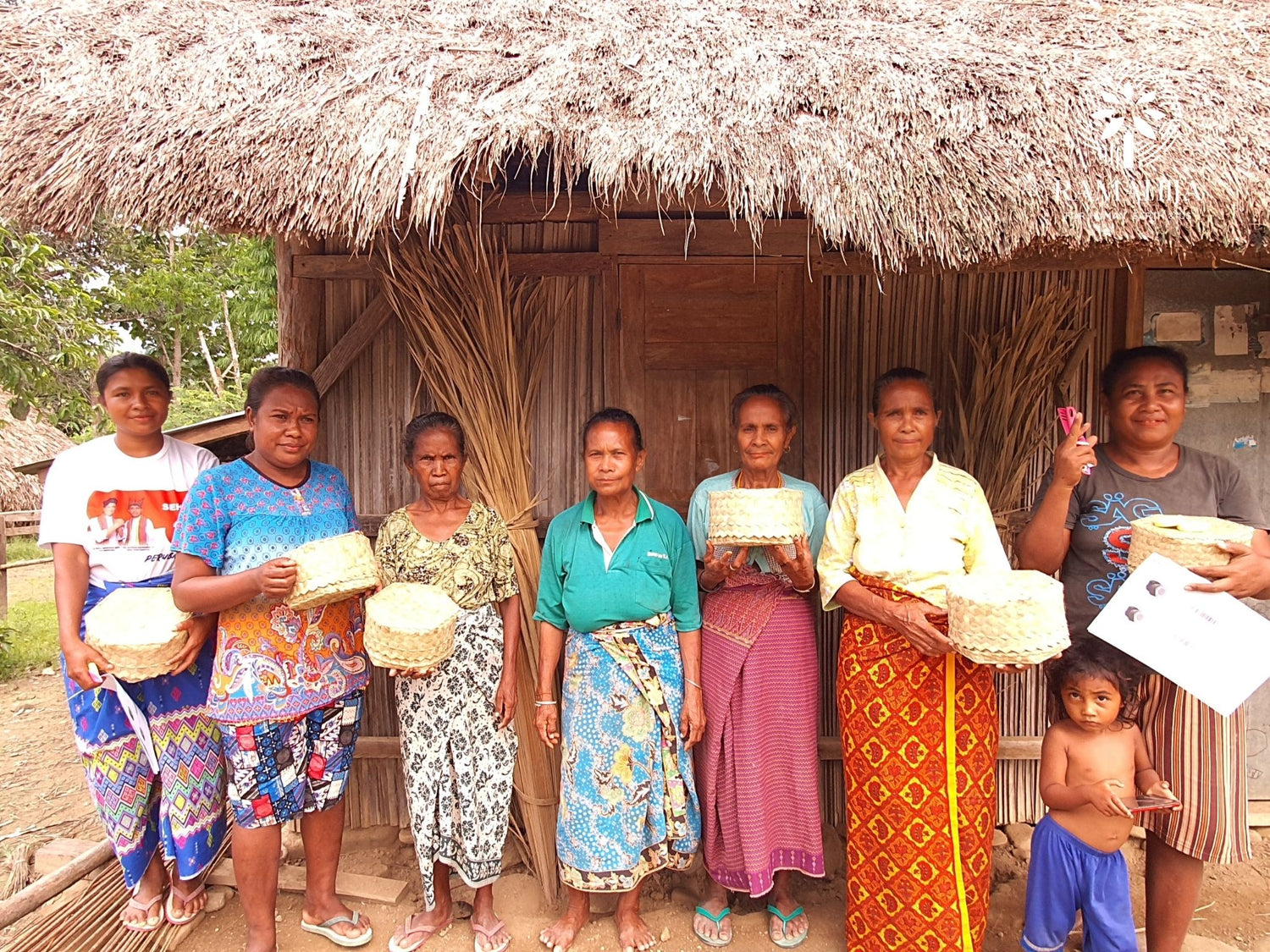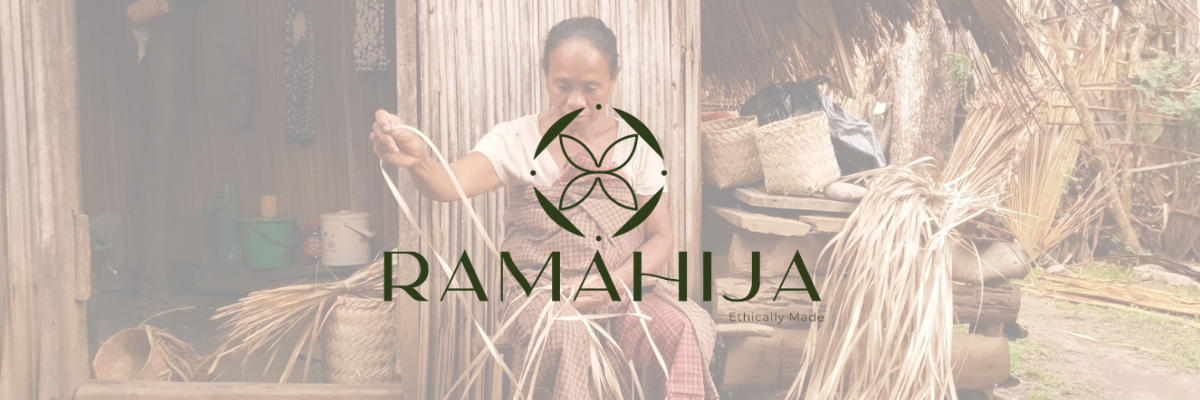Meet Ramahija
As a social enterprise that aims to empower rural communities in Timor Island, Ramahija encourages them to achieve their dreams through crafting ethically-made natural fiber products with their hands. Through their products, they strive to provide consumers with sustainable-living solutions and encourage them to reconnect and be in harmony with nature.
Determined to facilitate harmony between humans and nature, Ramahija extracts abundant non-renewable resources to produce good-quality natural products.

Their Story
Ramahija was founded by Alexander Kevin D. Samara who is passionate about pursuing the dream to develop his hometown and contributing to social/environmental issues. The name Ramahija is a combination of the words “Ramah” and “Mahija.” The first word means ‘friendly’ in Indonesian while the second word comes from Sanskrit meaning ‘Son and Daughter of Earth’. As the son and daughter of Earth, the company believes that we should express more of our gratitude to the environment we live in through protecting and loving the Earth.
Their Vision & Mission
Ramahija aims to save the earth from the waste pollution crisis, reduce the usage of animal skins, raise the economic level of local craftsmen, and raise awareness for protecting the environment and helping others.
To achieve their visions, they are eager to use recycled materials from plastic and food waste, use bio-mass as bio-leather material, establish long-term collaborations with local craftsmen in Indonesia, and conduct campaigns to voice social and environmental impacts
The Hands Behind Ramahija
Ramahija has been engaging with two tribes–Tetun and Kemak–in several villages of Timor Island. The makers are comprised of women and refugees from Timor. Aside from them, they have also included prospective makers and youths above 17 years old. The farmers from other tribes (i.e., Marae and Dawan) are also their substantial partners who provide them with crafting materials for the Mamas.

Their Impact
As a company, they are determined to fulfilling four SDGs: (1) No Poverty, (5) Gender Equality, (8) Decent Work and Economic Growth, and (12) Responsible Consumption and Production. Through these goals, they have been reducing waste on Earth by utilizing craftsmen's talent in Timor, empowering women, and preserving culture and tradition.

